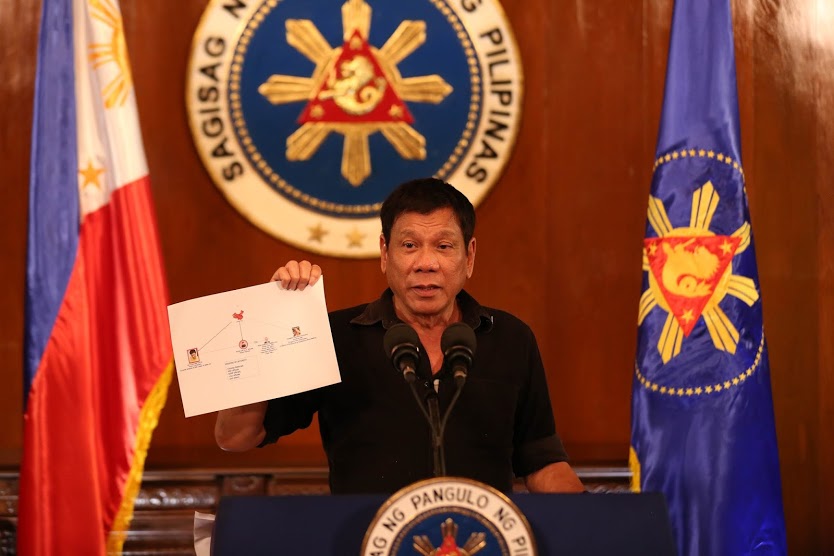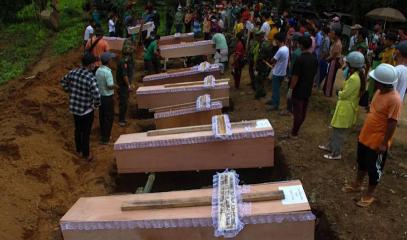War on drugs: Duterte’s admissions make him liable for ‘crimes against humanity’
House Human Rights Committee chairperson highlights this aspect of the former president’s statement at yesterday's hearing in which he acknowledged that he had given orders to "encourage" suspects to react, to justify killings by policemen. For lawyers and activists, his words are " damning evidence” of guilt.
Manila (AsiaNews) – Former Philippine President Rodrigo Duterte could be charged with “crimes against humanity" following his admission yesterday before the Senate regarding his active role in the numerous deaths linked to the war on drugs carried out during his term in office, House human rights committee chairperson Bienvenido Abante said today, a day after the former head of state said that he ordered policemen to "encourage" suspects to react so at to kill them and that he had his own personal death squad.
“It is now up to the proper authorities to consider the statement carefully and ascertain the criminal liability of responsible individuals whether under the concept of command responsibility or conspiracy,” Abante noted.
“These cases,” he warns, “could include crimes against humanity, as penalized under Republic Act No. 9581, the Philippine Act on Crimes against International Humanitarian Law, Genocide, and Other Crimes against Humanity.” Asked about the scope of the admissions before the commission, he stressed that they are "binding".
Human rights lawyer Chel Diokno, who was present at yesterday's Senate hearing, expressed a similar opinion noting that Duterte's admissions could be used against him in court.
“It is very damning evidence because he made those statements under oath and those are what we call extrajudicial admissions,” Diokno said during a television interview. “That is coming from the horse’s mouth. It is the best kind of evidence because it doesn’t come from someone else. It came directly from the former president.”
Regarding the statements, the House human rights committee chairperson noted the "shocking normalisation of brutality" during the hearing, adding that the president "offers no apology, no excuses” for the extrajudicial executions that characterised his mandate.
Duterte won a landslide victory in the 2016 presidential election, thanks in part to a pledge he made to carry out a nationwide anti-crime campaign like one he conducted when he was mayor of Davao City.
The war on drug trafficking and drug use has seen thousands of suspects killed in controversial police operations. An investigation by the International Criminal Court (ICC) is still ongoing to determine whether the killings linked to the violent anti-drug campaign, which the UN has also investigated, are the result of state policy.
The official death toll according to data from the Philippine National Police (PNP) tops 6,600, but media reports and human rights groups suggest that the number of those killed could be between 27,000 and 30,000, if murders by vigilantes are counter.
The committee had invited Duterte to the 22 October session so that he could respond to allegations that, after winning the 2016 presidential election, he deliberately applied the so-called Davao model to the whole country. The policy provided for monetary rewards for successful killings. The next hearing is now set for 6 November.
“We expect the former president to show up in our next hearing. We have many questions to ask him about his war on drugs and the deaths that resulted from it. We believe his answers will give us a more complete picture of the extrajudicial killings,” Abante said.
11/12/2023 18:37
23/11/2022 17:03








.png)










